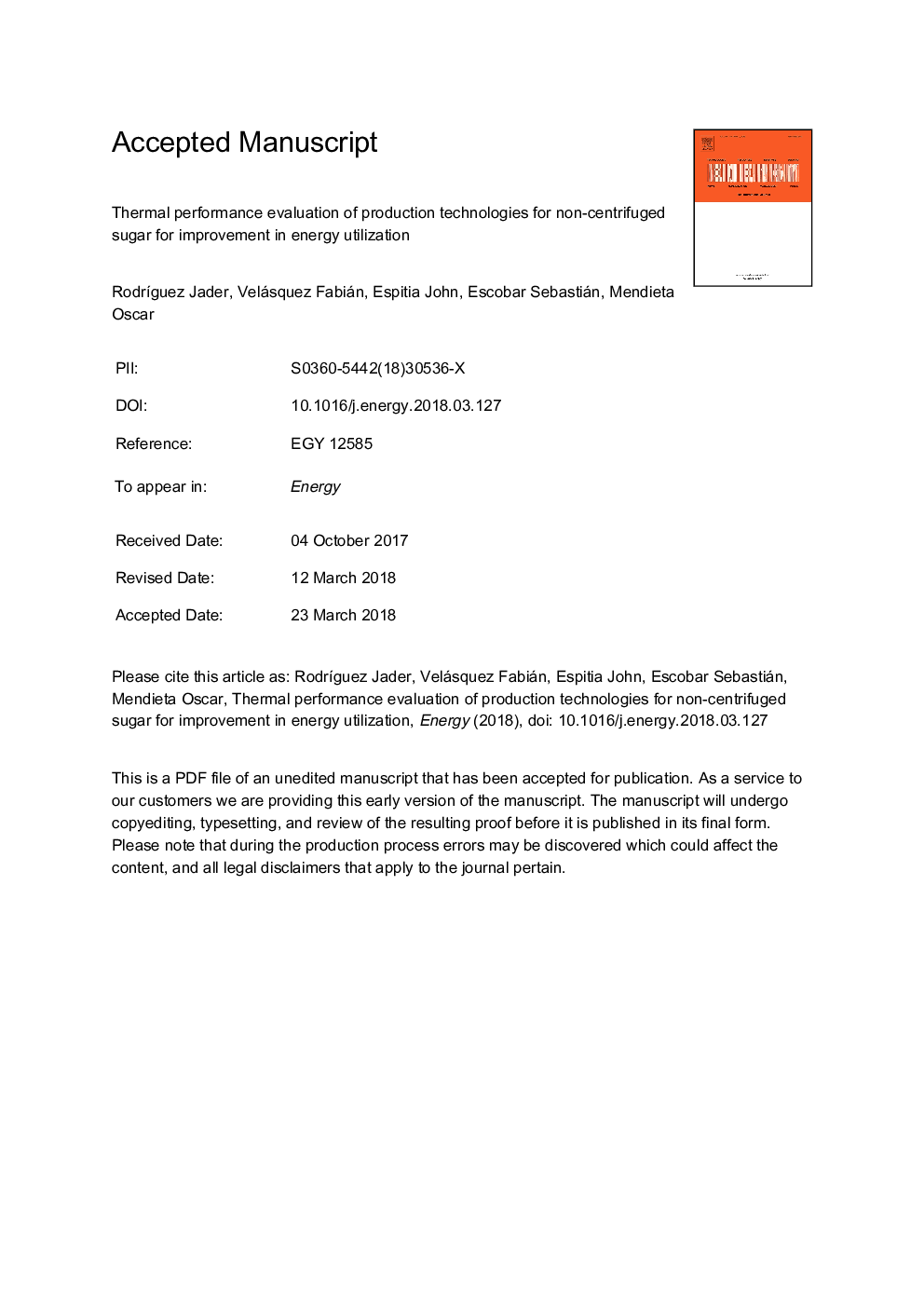| Article ID | Journal | Published Year | Pages | File Type |
|---|---|---|---|---|
| 8071704 | Energy | 2018 | 24 Pages |
Abstract
Non-centrifuged sugar (NCS) is produced through the evaporation of water from sugarcane juice, using the thermal energy released from the combustion of sugarcane bagasse. The energy efficiency of the process varies significantly according to the technology implemented in evaporation and combustion operations. Therefore, energy optimization usage becomes essential for the improvement of the equipment, as well as the appropriate development of the manufacturing process. The aim of this study was to evaluate seven groups of technologies related to bagasse combustion and heat exchange systems, used in the production of NCS. The evaluation was performed based on five parameters: overall thermal efficiency (η), energy consumption (MJ)/NCS (kg), O2, CO2 and CO emission indices at the exit of the process, flue gases/NCS (kg/kg), and air-fuel ratio (AFR). Each group of technologies evaluated had a significant effect on the parameters considered. However, the best results were shown by the technologies where steam was used in closed systems, obtaining an overall thermal efficiency of 63.63â¯Â±â¯5.17%, with a significant decrease in fuel consumption and lower gas emissions.
Related Topics
Physical Sciences and Engineering
Energy
Energy (General)
Authors
RodrÃguez Jader, Velásquez Fabián, Espitia John, Escobar Sebastián, Mendieta Oscar,
